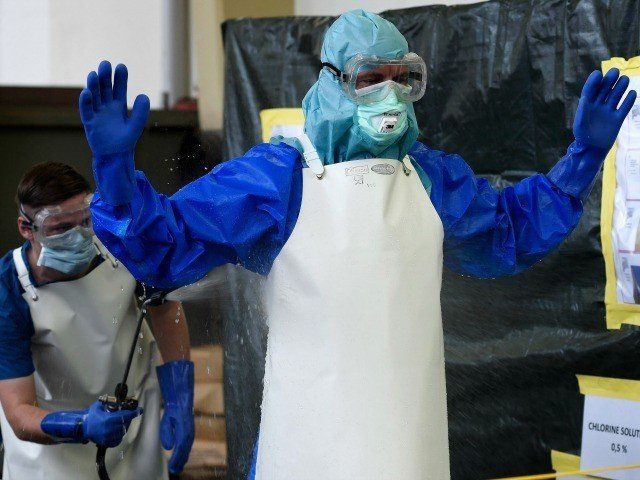Nearly nine months, 6,915 deaths, and 18,603 cases later, the United Nations is ready to take some action on the Ebola outbreak ravaging West Africa. Secretary-General Ban Ki-Moon announced a tour of the stricken West African countries—Sierra Leone, Liberia, and Guinea, as well as Mali, and several other regional neighbors.
While the news is welcome for many, it may be too late for the United Nations to make any significant impact in the region. The recent death and infection statistics above are the World Health Organization’s (WHO) latest for an outbreak that began in March, and, in Sierra Leone, hope grows dimmer as yet another top doctor succumbs to the disease.
The Associated Press reports that Ban made the announcement this week, visiting the struggling nations to oversee United Nations activities. “I want to see the response for myself and show my solidarity with those affected, and urge even greater global action,” he said at a press conference. The United Nations previously held international talks regarding the response to the Ebola outbreak in September, six months after the outbreak began.
Doctors and health experts on the ground have been criticizing international aid efforts for months as far too slow and inefficient. The outbreak is believed to have begun in March, when a young boy contracted the virus through the consumption of undercooked bush meat, through which the Ebola virus is spread. In May, the World Health Organization noted that the outbreak could be stopped—in fact, on May 18, the WHO claimed that, with the correct amount of international attention, the virus could be stopped “by May 22.” That international response did not arrive, the virus spread to Sierra Leone and Guinea, and, by August, the WHO declared the outbreak an “international health emergency.”
By June, long before that declaration, international organizations on the ground like Doctors without Borders and Plan International were criticizing the WHO, the UN, and large nations for not stopping the virus in its tracks. Health workers and international volunteers from Christian charities like SIM and Samaritan’s Purse were on the front lines and, as a result, were the first international workers to contract Ebola. The situation was “out of control” in June, according to Doctors without Borders.
And yet, it was only in September that the UN held emergency talks. By then, the American Center for Disease Control had declared that the world was “losing the battle against Ebola.”
Now, two months later, Ban has announced a visit to West Africa. What he will find there is a cluster of ravaged nations that still seem to have no hope for preventing the further spread of the disease. While Guinea and Liberia have made modest improvements, the situation in Sierra Leone has deteriorated significantly. On Wednesday, Sierra Leone lost prominent doctor Victor Willoughby, the 12th senior doctor to die of the disease in the nation according to Reuters. He was diagnosed on Saturday. Neighborhoods around Freetown, previously untouched by Ebola, are seeing a surge in cases, so much so that the government has canceled all Christmas celebrations to prevent large assemblies of people.
What the death toll and human as well as economic cost of the outbreak will look like once it has subsided is anyone’s guess, but what is clear to any observer is that the lack of international engagement with this situation early on has brought about a situation of international chaos and danger in a region already struggling to hold together. The United Nations’ engagement now, at the year’s end, will do little to heal community wounds months in the making.

COMMENTS
Please let us know if you're having issues with commenting.